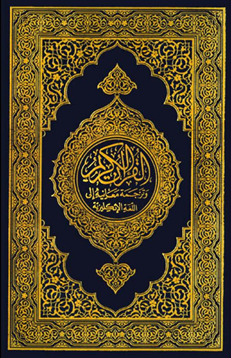|

In my last blog, I referred to Hindu principles and duties to conservation, and I now would like to explore with you what the Islamic religion has to say on this subject. As stated before, the Christian religion has largely misinterpreted a single word in the Old Testament – dominion – to imply freedom of use of all animals, and thereby conservation ethics are compromised. Hinduism and Islam take a much sterner view, and dominion becomes much more of a stewardship obligation, as it should be.
Islamic principles have the following to say about conservation:
• Mankind is enjoined by God to look after all living beings on Earth (see 21107). Forest denudation, hunting for sport and greed to make profits have with time upset the natural apportionment of the planet‘s resources, whose protection Islam advocates unequivocally. Thus, conservation …was stressed … by Islam long before industrialisation and ruthless capitalism threatened to adversely affect the planet‘s ecological balance.
• Furthermore, all human beings and, indeed, livestock and wildlife as well, enjoy the right to share in the resources of the earth. Man’s abuse of any resource, such as water, air, land, and soil as well as other living creatures such as plants and animals is forbidden, and the best use of all resources, both living and lifeless, is prescribed.
• Every element and species has its individual and unique role to play in glorifying God, and in bringing man to know and understand his Creator by showing him, through their being and uses, God’s infinite power, wisdom, and mercy. It is impossible to countenance the wilful ruin and loss of any of the basic elements and species of the creation, or to think that the continued existence of the remainder is sufficient to lead us to contemplate the glory, wisdom, and might of God in all the aspects that are intended. Indeed, because species differ in their special qualities, and each evidences God’s glory in ways unique to it alone.
• Several times in the Qur’an, man is invited to make use of the nourishing goods that Allah has placed on earth for him, but abuse—particularly through extravagance and excess—is strictly forbidden.
• Thus, Islam teaches that humanity is an integral part of the environment; it is part of the creation of Almighty God. We remain deeply locked into the natural domain despite the fact that there is talk of bringing the environment to the people as though we were independent of it. The power given to man by God is seen in Islam to be limited by the responsibilities he bears, not only toward God and other men and women, but also toward the rest of creation.
• Allah, in His Wisdom, appointed humans, the creatures that He has conferred with the faculty of reason and with free will, to be His vice regents on earth. And while Allah has invited people to partake of the fruits of the earth for their rightful nourishment and enjoyment, He has also directed them not to waste that which Allah has provided for him—for He loveth not wasters.
• Furthermore, Allah has also ordered humans to administer his responsibilities with Justice. Above all, people should conserve the balance of Allah’s creation on Earth. By virtue of their intelligence, humanity (when it believes in the One Universal Allah, the Creator of the Universe) is the only creation of Allah to be entrusted with the overall responsibility of maintaining planet Earth in the overall balanced ecology that man found.
• The famous concept in terms of moral development is the unity (tawheed) introduced by Islam. It develops people’s perspectives of how to understand the relationships between human, nature, and God. The intersection of these three components establishes the perspective of creator, creation, and creature that one and others influence or are influenced by. So humans and nature have intimate relationships that are mandated by God to develop prosperity. By realizing the mandate that humans guide nature, it is an obligation to sustain it for future generations. The obligation presents responsibility among humans that is intergenerational and inter-creature. It is also an expression of obedience towards Allah.
• Imaams al-Bukhaari and Muslim reported from Ibn ‘Umar that the Prophet said: “May Allaah’s curse be upon the person who makes a living animal a target for shooting (i.e. for the sake of amusement and sport)”.
Clearly, Islam advocates stewardship, and parts of the Koran, when assimilated, are clear in the message that while humans have a mandate, they also have a great responsibility.
Image: http://www.google.co.za/imgres?imgurl=http://www.tunisvista.com/Quran/noble-quran.jpg
|




